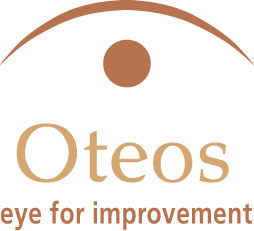Do you ever feel like your organization doesn’t actually hear you? Or perhaps your organization doesn’t offer a safe environment that encourages you to speak up? All too often, one of these scenarios is played out in the workplace. Many businesses feel that they have processes in place to ensure employee feedback, but is it effective?
Stoping the Silence
Previously I wrote about the importance of not silencing your staff. Aside from providing a safe culture within the organization that encourages staff input and feedback, many companies miss out on the opportunity for the most honest feedback by skipping the exit interview. There are multiple reasons for the exit interview, but the most important is to get a candid overview of the organization’s culture and environment. The information obtained from an exit interview can identify opportunities for employee retention, leadership development, and succession planning.
Don’t Assume
When I left after 20 years with the same organization, I literally begged for an exit interview. After being completely ignored by one CEO (who suddenly left the organization without explanation), I approached the new CEO requesting a brief meeting. I was quickly dismissed and wished the best of luck in a brief email response. I simply wanted to express my experience with the organization and my concerns out of dedication to my previous patients and the work-family I left behind.
No one in management asked why I was leaving. Assumptions were made, but only those close colleagues knew the real reason. I could no longer work in an environment that didn’t support their staff, seek genuine feedback or provide the tools that allowed me to do my job at the level that made me feel fulfilled. More importantly, I no longer felt that the organization prioritized patient safety, leaving me feeling less competent as a health care provider.
Why The Exit Interview
Unfortunately, the absence of an exit interview is common. The insight that upper management missed by dismissing my request saddens me. Even worse, my work family is stuck in the same toxic environment that forced me to leave, and it’s only getting worse.

It’s essential to have clearly identified standards for the exit interview to make them successful. Most Fortune 500 companies perform exit interviews but only 40% feel they are properly utilized. Make sure to have a format that can get useful information. The last touchpoint with the employee gives the interviewer the opportunity to ask about issues that are concerning or unresolved. It also allows the employee to leave with a sense of feeling heard. Why is that important – they are leaving after all? Because in todays employment climate, you never know when you may need to call that worker back for some help. If they left on a sour note, they are guarantee not to help out in a shortage. This frequently occurs in healthcare but also in any skilled industry. Boomers are retiring at an alarming rate, and there isn’t always someone qualified to immediately replace them.
Making Them Count
Finally, assessing and utilizing the information after the interview is vital. We’ve all filled out an employee survey that was later thrown in the trash and never actually looked at, let alone the feedback reviewed and put to use. This is important if the organization has a genuine interest in maintaining a healthy culture and an environment that encourages communication and investment from the employees. After all, without staff, no organization would exist. Employees are the company. Dedicated and fulfilled leaders and employees want to put their best foot forward. The key is to keep both feet in the business but if they choose to leave, find out why. The reasons may surprise you. At the very least, it will provide you with valuable insight and the opportunity to improve and grow your business.



